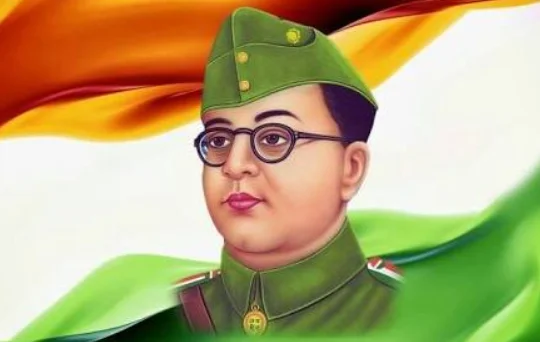Heroes defy neat categorizations. Politicians need to address contemporary challenges
The unsavoury developments during the 124th birth anniversary celebration of Netaji Subhas Chandra Bose in Kolkata last week encapsulate some disappointing dimensions of contemporary Indian politics. Just as West Bengal chief minister Mamata Banerjee was to address the gathering, a section of the crowd chanted Jai Shri Ram. Given the occasion and the bitter rivalry between TMC and BJP in the state, the chants can be construed as unwarranted political sloganeering. In addition, the disagreements between the state and the Centre on other aspects of the anniversary celebration marred an important occasion.
It’s not uncommon for political parties to appropriate figures whose appeal transcends narrow boundaries. But in the process hugely consequential figures are pigeonholed to fit contemporary agendas. Bose, like his peers, was a complex personality. The relationships of his era also defy neat categorization. The sharp differences between Bose and Gandhi are well documented. But that didn’t prevent Bose, commander of the Indian National Army, from naming two brigades after Gandhi and Nehru. He also addressed Gandhi as the “Father of our Nation” in a radio broadcast in July 1944. The relationship between stalwarts of the freedom struggle was many layered.
Bose was anything but sectarian in his views. The landmark INA trial in November 1945, which catalyzed patriotic fervor, had Hindu, Muslim and Sikh soldiers facing the charge of treason. It’s important to keep in mind that the positions adopted by many stalwarts belonged to an era guided by goals and constraints far removed from what India faces today. Any policy position that governments adopt today must be defended in a contemporary context. Invoking the rhetoric of a bygone age isn’t adequate to justify or reject policies in contemporary India. Context matters and trade-offs faced by leaders change over time.
All of this is relevant in the context of political campaigning in Bengal ahead of the assembly elections. The campaigning has been characterized by an appeal to emotions. None of the contenders appear keen on discussing substantive issues. This is unfortunate, because till the early 1980s Bengal was one of India’s most industrialized states. It’s also known as the home of the Bengal Renaissance. If India is to transition to rapid economic growth, Bengal has to be integral to the effort. If political parties want to honor Bose’s legacy, they should channel campaigning towards issues relevant to the state’s future.




